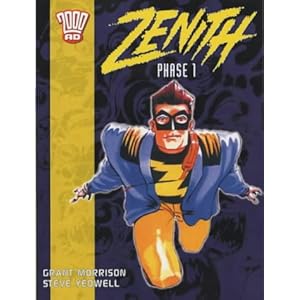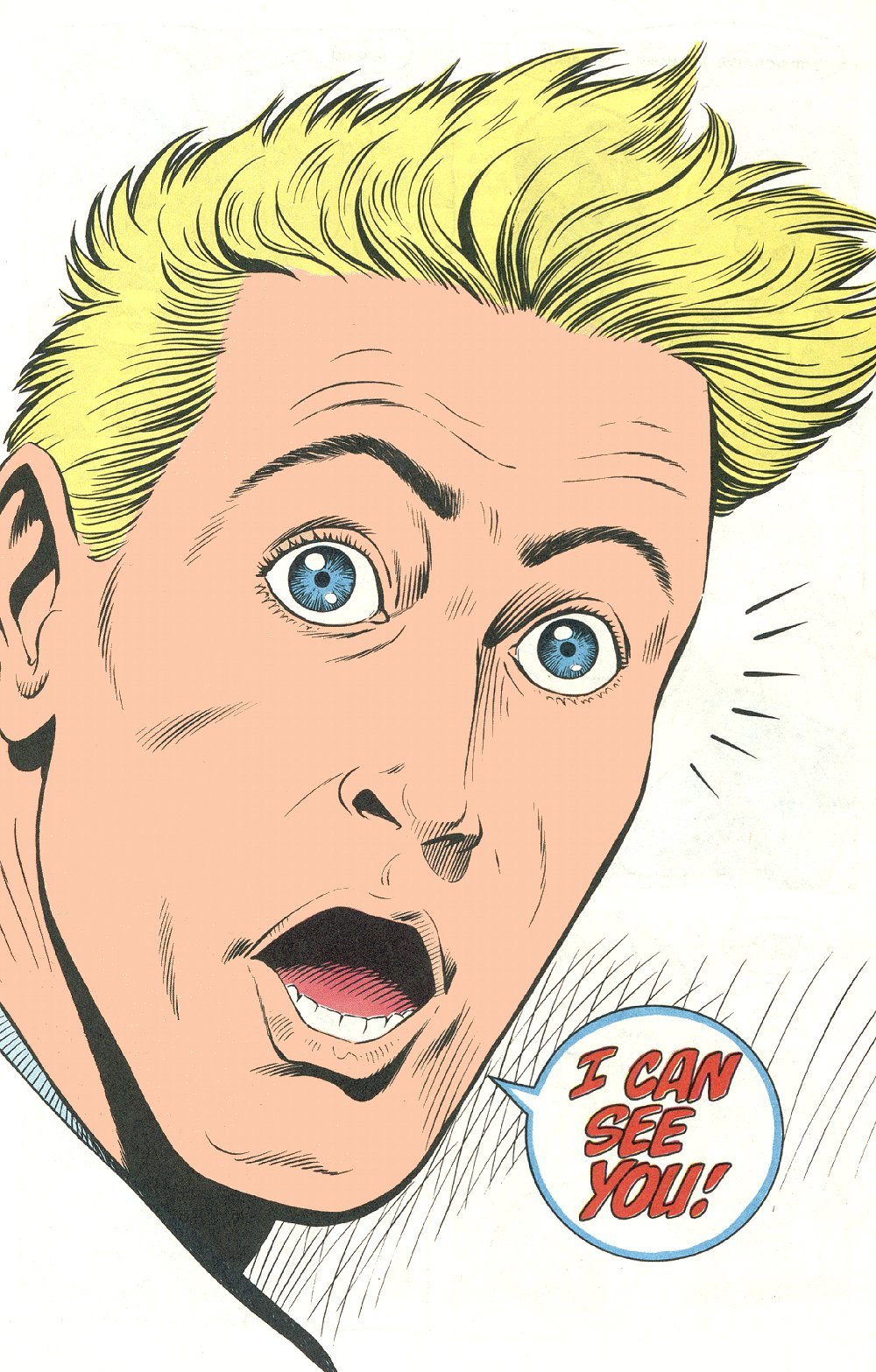The author in his younger days and as he is now-
Doesn't he look so cool?
And here's the crap cover of the English edition of his book.
Morrison is generally considered to be one of the great British writers of American comics who is either on, or just slightly below, the same pantheon which includes Alan Moore and Neil Gaiman and his other peers are Warren Ellis and Mark Millar. If none of those names mean anything to you, then this isn't the blog for you. I'm inclined to rank them in the order I've listed with Morrison at No.3.
This book is basically his love affair with super-hero comics, their effect on his life, and his effect (as a writer) on them. I've read a couple of British press reviews of the book and both reviewers miss the point. They like it fine when he's doing a history (albeit a narrow and stylish history) but feel it goes off the rails when it becomes a personal story. They have, of course, got it wrong. The historical account is simply the context for Morrison's personal exploration of the super-hero genre and when it gets personal, it gets going. This isn't a history of super-heroes, though his account of the genre and his response to developments in it is vital to understand how Morrison sees how it should be transformed.
Of particular interest are his reactions to Moore and Gibbons transformative Watchmen. Morrison admires the technique, skill and intelligence which goes into it but finds it a hollow exercise -I'm simplifying here, read the book for his full argument- and made this clear at the time. Several years later Moore described Morrison's Arkham Asylum (with artist Dave McKean) as 'a gilded turd'; 'gilded' referring to the art, 'turd' to the writing. Morrison's opinions on the work of his peers are elegantly expressed and endlessly interesting.
Where the book becomes truly fascinating is when Morrison delves into his experiences with drugs and mysticism which alters his entire perception of the world.
Or:
Where the book goes completely off the rails and Morrison is exposed as a self-obsessed nut-job is when he delves into his experiences with drugs and mysticism which alters his entire perception of the world.
Depending on your own inclination. My own view of the world, as a libertarian-leftie atheist who has faith only in hard science and a deep distrust of any form of mysticism, is to take the second view. And yet the more you read of these experiences, the more strangely convincing they become. Morrison sees an analogy between inserting himself into two dimensional fiction space -as he does when he confronts the protagonist of the comic he's been writing (Animal Man)- and dimensions higher than ours which we, like Animal Man himself, are unable to perceive. (To get the next reference you need to read the book for its context) Flash Fact: five year old children cannot see perspective but seven year olds can.
I find this whole personal journey quite fascinating for how it informs the super-hero comics he's written and into which he goes into considerable detail which is all interesting as he's written some of the best mainstream superhero comics ever as well as some of the best oddball comics.
And here are some of them-
Starting with The Invisibles. Spot the Morrison look-alike.
This actually needs a little explanation. Batman here is Dick Grayson (formerly Robin, formerly Nightwing), and Robin is Damian al-Gul (son of Talia -herself the daughter of Batman villain R'as al-Gul- and Bruce Wayne) and he's a bit of a psycho.
And this is the panel from Animal Man where our hero looks beyond the borders of the panel (breaking what is known in trade a 'breaking the fourth wall') and sees the people looking at him. If you can believe Grant Morrison, he can see you too.









No comments:
Post a Comment